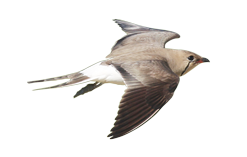IImpact of global changes on biodiversity in Mediterranean wetlands
Objectives
A doctoral thesis co-supervised by the Tour du Valat and the Muséum national d’histoire naturelle has been in progress on this project since 2015. Its goal is to assess the impact and the hierarchy of the anthropogenic pressures that have an impact on the communities of waterbirds wintering in Mediterranean wetlands. It is based on the counting data gathered in the winter for all Mediterranean countries since the early 1990s, and takes account of climate change, land use, and protective measures.
Actions and methodology
Via the utilisation of indicators that measure the increasing numbers of thermophile species (which prefer higher temperatures) or generalist species, changes in communities are compared to the pressures stemming from global warming and the artificialisation of wetlands. Powerful statistical modelling tools are used to achieve this goal.
Results
The studies in progress show that waterbirds show a general response to global warming, in particular by wintering further and further north. However, there are differences in their capacity to adjust their geographic distribution. For example, the more species and their habitats are protected (Birds Directive and Berne Convention), the more they adjust their geographic distribution in response to climate changes. In addition, the more a wetland is damaged, the more the adjustment is limited. The proportion of natural habitats also influences the proportion of specialist species, because the distrubances benefit the more generalist species.
Team
- Project leader: Thomas Galewski
- Staff involved: Élie Gaget, Isabelle Le Viol (MNHN), Fréderic Jiguet (MNHN)
Partners
Technical partners
- Wetlands International
- Office National de la Chasse et de la Faune Sauvage
- Muséum national d’Histoire naturelle



